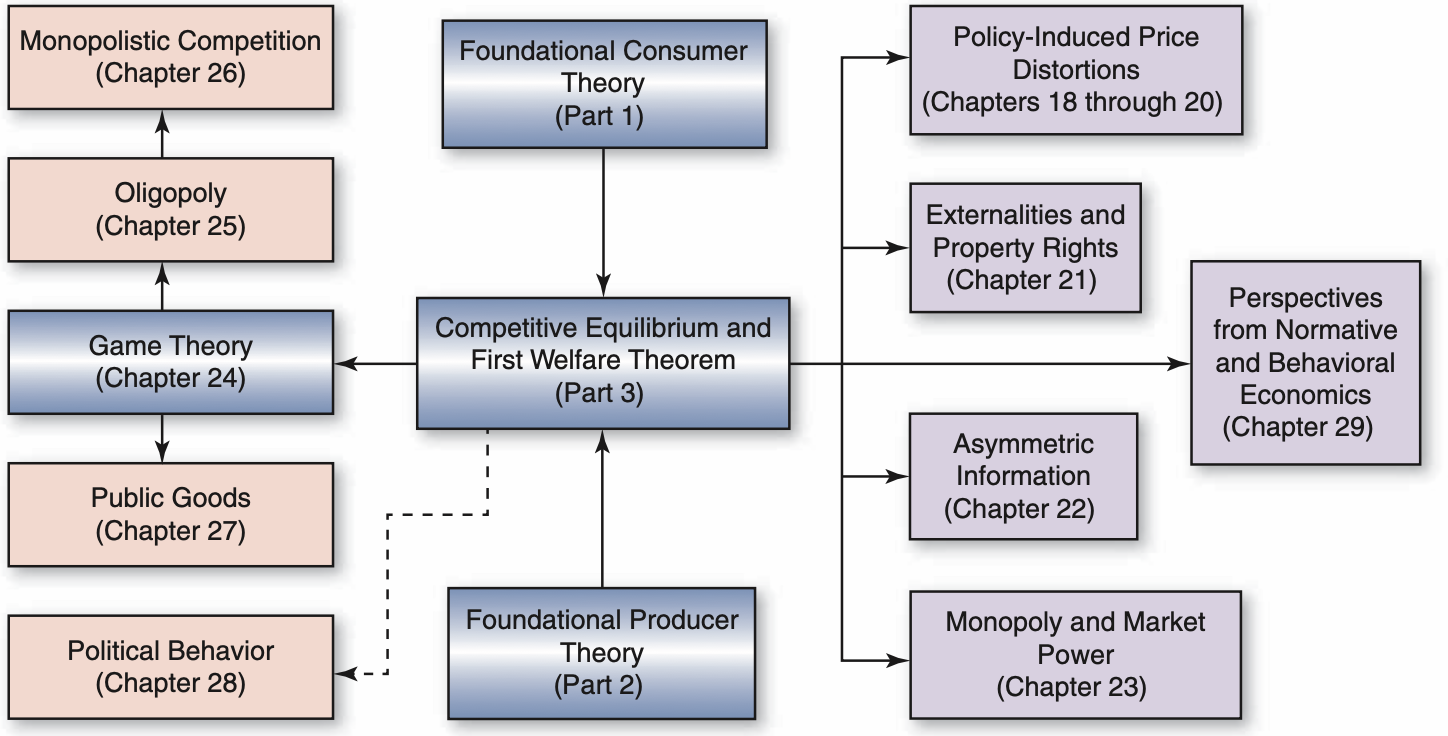
Course process.
Economics as a Science
Economics is a science as it creates hypotheses and conducts experiments if they are correct.
- Since you can’t often create tests IRL, econometrics deals with interpreting real-world data as a substitute for an experiment
- Experimental economics is a small discipline where you actually conduct experiments
(This is not as scientific as it seems. See Philosophy, Political Science, Economics)
Building Blocks of Microeconomics
Assume: People are rational in their pursuit of perceived self-interests. Such people are called economic agents.
→ …thus people respond to incentives
→ …then as a consequence of multiple economic agents interacting, there will emerge social consequences.
Economic Modeling
Modeling in economics is a process of distilling the essence of a real-world phenomenon, in order to make predictions about the real world.
Model → Optimization → Equilibrium
- Model: form a model that describes an economic phenomena (make assumptions, Ceteris Paribus)
- Optimization: consider how economic agents will interact within such assumptions & models. Use math if necessary.
- Equilibrium: predict what will ultimately happen in such a model? What is the ending point? (make predictions)
(Economically, an equilibrium (=Pareto Equilibrium) is a point where no agent can be better off without making another agent worse off)
doesn’t need to have realistic assumptions. It just needs to predict reality really well.
→ Consider: A good pool player doesn’t need to know kinematics to score well. Similarly an economic model doesn’t need realistic assumptions if it can realistically predict real-world economic phenomena.
Other Key Points
- The world isn’t a zero sum game. Adam Smith: think of purchasing a piece of bread at 2, so they’re better off.
- Attribution Bias. People’s actions are due more to the sum of the incentives acting on them, rather than their inherent quality. Don’t attribute it to their personality.
- Decentralization. The rules of the economic game shapes a bottom-up spontaneous order that shapes the world and rations limited resources.